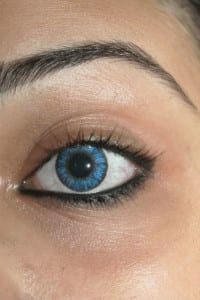
And whether your eyes are brown, blue, green or hazel, your eye color can tell you more about yourself than you might realize. For example, your eye color could:
- Indicate your risk for certain diseases
- Predict how your body will handle alcohol
Here are some things your eye color can tell you:
If you have dark eyes, you are more likely to develop cataracts
Cataracts cause a clouding of the vision and are common with aging. But people with dark eyes are at greater risk of forming cataracts, according to a study published in the American Journal of Ophthalmology in 2000.
Protecting your eyes from ultraviolet rays is one of the main ways to prevent cataracts for all of us, but research indicates that people with dark eyes should make every effort to avoid exposing their eyes to sunlight unprotected.
If you have dark eyes, you are more likely to have vitiligo
Research published in Nature found that this autoimmune disease, which causes a blotchy loss of skin pigment, was less common in people with blue eyes.
If you have blue eyes, you are more likely to develop melanoma
The same genetic variations that can protect a blue-eyed person from vitiligo can increase the risk for melanoma. With autoimmune diseases, such as vitiligo, our natural immune response mistakenly attacks our own bodies. This could be what makes brown-eyed people more susceptible to vitiligo, and what fights off melanoma.
If you have dark eyes, you may be more sensitive to alcohol
According to a study published in 2001, blue- and green-eyed people can’t tolerate the effects of alcohol better that those with black or brown.
No matter the color of your eyes, take good care of them
See you eye doctor regularly. Call for an appointment today:
(352)237-8400 or toll-free (800)521-6028.




